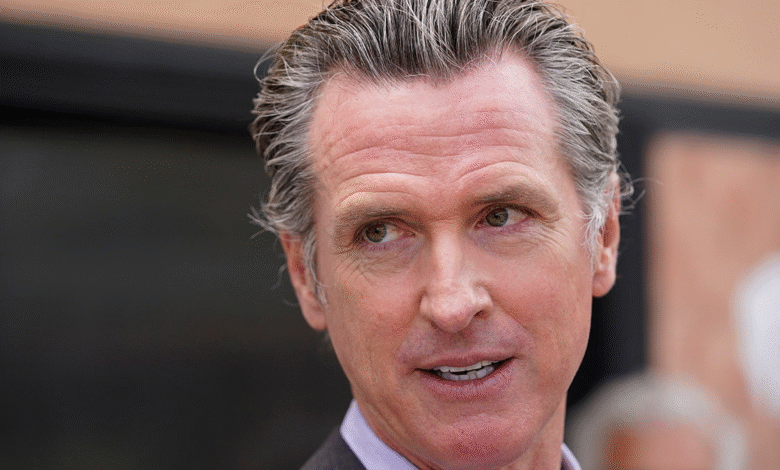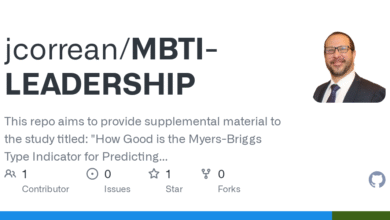Gavin Newsom Lawsuit Against Fox News Seeks $787M Damages

California Governor Gavin Newsom has recently initiated a lawsuit against Fox News, demanding at least $787 million in damages for alleged defamation. In this high-profile case, Newsom accuses the conservative media outlet of spreading false information regarding a phone call he had with then-President Donald Trump. Declaring his stand against misinformation, Newsom tweeted, “No more lies,” signaling his intent to hold Fox accountable for its coverage. The lawsuit revolves around comments made by Fox News anchor Jesse Waters, who claimed that Newsom misrepresented details of the call in early June. This conflict highlights broader issues of media integrity, particularly as California’s governor seeks to challenge the narratives put forth by Fox News amid ongoing political controversies related to the Trump administration’s policies on immigration enforcement and military deployment in California.
In a bold move against perceived media misrepresentation, California’s governor has taken legal action against a prominent news outlet, seeking substantial compensation for alleged defamation. Newsom’s lawsuit against the conservative network emphasizes the need for accountability in journalism, particularly regarding its influence on public perception during politically charged times. This case not only underscores the significance of truthful reporting but also illustrates the tensions between state leaders and media entities when controversial topics arise. As the legal proceedings unfold, the ramifications of this defamation damages lawsuit could set critical precedents for how political figures interact with the media. Observers watch closely as this saga develops, wondering how it may reshape the landscape of political communications in America.
Gavin Newsom’s Legal Battle Against Fox News
Governor Gavin Newsom has launched a significant legal campaign against Fox News, filing a defamation lawsuit that seeks damages exceeding $787 million. This legal action emphasizes the governor’s commitment to combating misinformation disseminated by the media. Newsom’s allegations center around misleading statements made during a segment featuring Fox News anchor Jesse Watters, who claimed that Newsom misrepresented the nature of a phone conversation with former President Donald Trump. Such charges have sparked controversy, leading to Newsom’s determination to hold Fox News accountable for what he views as damaging falsehoods against his character.
The implications of this lawsuit extend beyond just Newsom; it reflects broader issues concerning media integrity and political discourse. In the wake of increasing partisan reporting, public figures are increasingly scrutinizing how news outlets portray their actions and words. With the stakes set high, Newsom’s pursuit of legal recourse may set a precedent for future defamation cases, especially concerning politicians confronting media entities that operate under the banner of freedom of speech while engaging in defamatory narratives.
Understanding the Fox News Defamation Case
At the heart of Governor Gavin Newsom’s lawsuit is an allegation that Fox News deliberately misrepresented his statements to further a political narrative consistent with former President Trump. The case is reminiscent of recent high-profile settlements, such as the Dominion Voting Systems lawsuit, where Fox News faced culpability for perpetuating false claims. These events underscore the increasing scrutiny on media outlets regarding their responsibility to report factual information and adhere to ethical journalism standards. Newsom’s case serves as a critical litmus test for how far public figures can go in addressing perceived slanders by the media.
In the past, Fox News has been embroiled in various controversies related to its reporting on politically charged issues. As such, the outcome of this defamation damages lawsuit could have far-reaching implications for both Fox News and other media organizations. It raises questions about the extent to which accountability can be enforced against media outlets that dominate public opinion and influence electoral politics. As Newsom navigates this legal landscape, it will be crucial to observe how the courts balance freedom of the press against the need to protect individuals from harmful defamation.
The Impact of Newsom’s Lawsuit on California Politics
Governor Gavin Newsom’s lawsuit against Fox News is more than just a legal proceeding; it represents a larger dialogue about the intersection of media and politics in California. By taking this stand, Newsom is not only responding to alleged defamations but also challenging the power dynamics between political figures and media conglomerates. His assertiveness in seeking justice could resonate with Californians who are increasingly aware of misinformation and its effects on political life. Furthermore, this legal battle places Newsom at the forefront of a national conversation surrounding defamation and media ethics.
The lawsuit may also have a rippling effect on California’s political landscape, as it could embolden other politicians to take a stand against what they perceive as media bias or misrepresentation. In a state known for its progressive stance, Newsom’s actions may inspire fellow Democrats to pursue legal recourse when they feel unfairly targeted by news outlets. This potential shift points to an emerging trend where public officials assert their rights more forcefully, aiming to establish clearer accountability standards for media organizations in how they report on political figures.
Media Accountability and Freedom of Speech
Newsom’s lawsuit against Fox News brings to light the critical issue of media accountability versus the principle of freedom of speech. While the press plays an essential role in democracy by informing the public, it also bears the responsibility of maintaining truthfulness in reporting. The allegations presented in Newsom’s case shine a spotlight on how narratives can be manipulated by news organizations, potentially leading to a misinformed public. As legal experts weigh in on the ramifications of this lawsuit, the complexities inherent in balancing these ideals will likely become a focal point of discussion.
Furthermore, the implications of changing media accountability rules could impact how journalists report politically sensitive topics. Should Newsom prevail in his lawsuit, it may encourage other public figures to challenge misleading media portrayals, thereby fostering an environment where traditional journalistic philosophies are reassessed. As the case progresses, observers will be keen to see how the court interprets the boundaries of freedom of speech in relation to media accuracy, ultimately influencing future defamation lawsuits across the nation.
The Broader Implications of the Newsom vs. Fox News Case
The legal confrontation between Governor Gavin Newsom and Fox News has broader implications that extend beyond California. It highlights the fragile line between political discourse and media integrity, serving as a bellwether for similar cases across the country. As misinformation continues to proliferate in the digital age, the necessity for accountability in the media becomes increasingly paramount. Should the court find for Newsom, it could signify a shift in how media companies handle accusations of defamation, prompting a reevaluation of their editorial practices and necessitating greater fact-checking before airing contentious claims.
Moreover, this case may usher in a new era of legal precedents concerning how public figures can respond to perceived media biases. Other governors, mayors, and public officials could view Newsom’s actions as a blueprint for challenging irresponsible reporting. Consequently, we may see a wave of similar lawsuits against various media outlets, with implications for the balance of power in political communication. As this case evolves, the legal community and political analysts will closely monitor its outcomes to gauge the impact on future media practices and political accountability.
Public Reaction to the Newsom Lawsuit
Public reaction to Governor Newsom’s lawsuit against Fox News is mixed, reflecting the polarized nature of contemporary media consumption. While some Californians support his stance against what they perceive as misinformation, others argue that the lawsuit could infringe on press freedoms. The tension surrounding Newsom’s actions illustrates the growing divide among voters regarding media trust and reporting ethics. Social media platforms have become a battleground for these opinions, as passionate discussions unfold and public sentiment about the lawsuit gains momentum.
Newsom’s decision to pursue litigation against Fox News may also influence how the public engages with news media in the future. For many, it raises awareness of the importance of verifying information before forming opinions or sharing content. In an era where sensationalized headlines capture attention, Newsom’s assertiveness may prompt citizens to critically evaluate media narratives and demand greater transparency from news organizations. This heightened scrutiny could reshape media company strategies as they strive to remain credible in an increasingly skeptical public landscape.
Legal Precedents in Defamation Cases
The Gavin Newsom lawsuit against Fox News is poised to contribute to existing legal precedents regarding defamation cases involving public figures. Historically, the legal framework surrounding defamation has established a high standard for public figures to meet when proving their claims. However, growing concerns over misinformation in media coverage may prompt courts to reevaluate these standards. By pushing back against perceived slander, Newsom’s case could challenge courts to consider evolving nuances in how defamation laws apply to modern media dynamics.
Should news outlets like Fox News face legal repercussions for misinformation, this could set a foundation for a new era in media accountability. Conversely, if courts continue to prioritize freedom of the press, it may embolden media outlets to ignore public figures’ claims, perpetuating a cycle of misinformation. As this lawsuit unfolds, it will be instrumental in shaping the future of defamation law and determining how courts balance the rights of individuals against the freedoms granted to the press.
Gavin Newsom’s Statement on Media Misinformation
In announcing his lawsuit against Fox News, Governor Gavin Newsom emphasized the need for truth and accountability in media reporting. He expressed his frustration with what he perceives as a deliberate campaign of misinformation aimed at politically damaging him. Newsom stated, “If Fox News wants to lie to the American people on Donald Trump’s behalf, it should face consequences — just like it did in the Dominion case.” This statement underscores his commitment to combating false narratives, which he argues are harmful not only to him but also to the public’s understanding of critical political issues.
Newsom’s resolve to stand against misinformation resonates with an increasingly concerned populace that is wary of the information they consume. By championing this legal battle, he seeks to engage citizens in discussions about media responsibility and the role of journalistic integrity in democracy. The outcome of this lawsuit may influence future interactions between the state and the media, pushing for greater accountability and encouraging politicians to address grievances with the press more openly.
Future of Media and Political Accountability
As the legal proceedings of Governor Gavin Newsom’s lawsuit against Fox News unfold, they are likely to spark discussions about the future of media and political accountability. In an age where misinformation can spread rapidly, the responsibility of news organizations to deliver accurate reporting has never been more critical. Newsom’s case, alongside others like it, may set significant precedents that compel media outlets to reevaluate their practices and prioritize truthfulness in their reporting.
The relationship between politicians and the media is evolving, with increased scrutiny on how narratives are constructed and propagated. Should Newsom succeed, it could encourage other public figures to pursue legal action against perceived inaccuracies, fundamentally reshaping how the media interacts with authority figures. This would not only enhance political accountability but also empower voters with clearer and more truthful narratives, contributing to a healthier democratic process.
Frequently Asked Questions
What is the Gavin Newsom lawsuit against Fox News about?
The Gavin Newsom lawsuit against Fox News is a defamation case in which California Governor Gavin Newsom accuses the conservative news network of defaming him regarding comments made by Fox News anchor Jesse Waters. Newsom seeks $787 million in damages, claiming Fox News lied about a phone call he had with President Trump.
Why did Gavin Newsom sue Fox News?
Gavin Newsom sued Fox News to address alleged defamatory statements made by Jesse Waters concerning a phone call with President Trump. Newsom argues that Fox News spread false narratives intended to support the Trump administration, impacting his reputation and credibility.
How much money is Gavin Newsom seeking in his lawsuit against Fox News?
In his lawsuit against Fox News, Gavin Newsom is seeking damages of at least $787 million, a figure similar to the settlement Fox Corp reached with Dominion Voting Systems earlier in 2023.
What statements from Fox News are part of the defamation lawsuit filed by Newsom?
The defamation lawsuit filed by Gavin Newsom highlights comments made by Jesse Waters, who accused the governor of lying about his phone call with President Trump. Newsom claims these statements are false and damaging, leading to the lawsuit.
What implications does the Gavin Newsom lawsuit against Fox News have for media accountability?
The Gavin Newsom lawsuit against Fox News raises significant questions about media accountability and the responsibility of news organizations to provide accurate information. By seeking damages, Newsom aims to hold Fox News accountable for what he considers their role in promoting misinformation.
Is there any response from Fox News regarding Gavin Newsom’s lawsuit?
As of now, there has been no official response from Fox News regarding Gavin Newsom’s lawsuit. The network has been contacted for comments about the claims made in the defamation case.
When and where was the Gavin Newsom lawsuit against Fox News filed?
The Gavin Newsom lawsuit against Fox News was filed in Delaware, where Fox News is incorporated. The filing occurred after Newsom addressed the matter in a tweet, stating, ‘No more lies.’
What are the potential outcomes of the Gavin Newsom defamation damages lawsuit against Fox News?
The potential outcomes of the Gavin Newsom defamation damages lawsuit against Fox News could include a settlement, a trial verdict favoring either side, or the dismissal of the case altogether, which may set precedents for future media defamation cases.
| Key Points | Details |
|---|---|
| Lawsuit Filed | Gavin Newsom has filed a lawsuit against Fox News. |
| Damages Sought | Newsom is seeking damages of at least $787 million. |
| Accusation | Accuses Fox News of defaming him regarding a call with President Trump. |
| Claims of Lies | Fox News anchor Jesse Waters claimed Newsom lied about the call with Trump. |
| Motivation Behind Lies | Allegations that Fox News lied to create narratives on behalf of Trump. |
| Context of Dispute | Dispute over deployment of National Guard troops in response to protests. |
| Comparison to Dominion Case | Amount sought mirrors the settlement Fox Corp. paid to Dominion Voting Systems. |
| Newsom’s Statement | Newsom emphasizes the need for Fox News to face consequences for false narratives. |
Summary
The Gavin Newsom lawsuit against Fox News represents a significant legal battle as the California Governor seeks accountability and damages for what he claims is defamation stemming from misleading coverage. This dispute highlights the ongoing tensions between political figures and media outlets, especially regarding the responsibility to present truthful narratives. Newsom’s determination to pursue this case reinforces the importance of media integrity and the impact of misinformation in contemporary governance.




